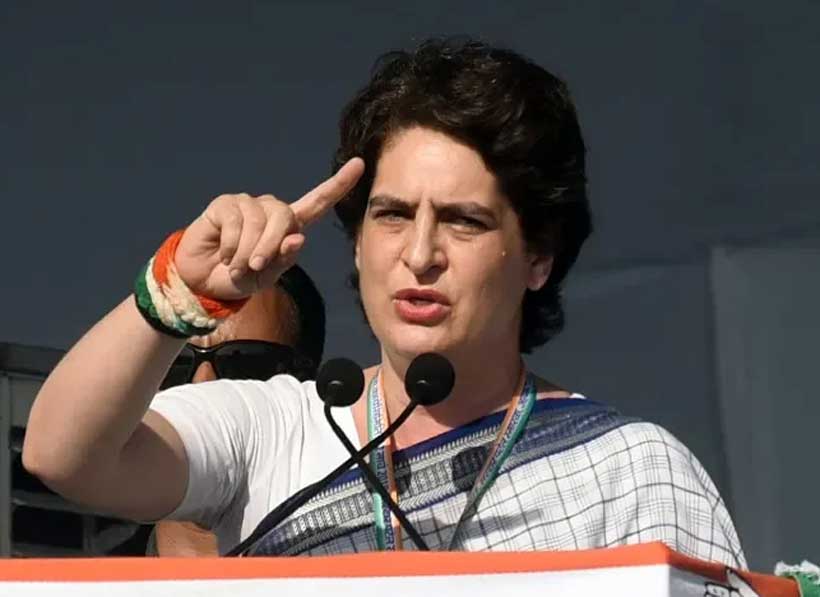It was on August 8 that Priyanka Gandhi went quite out of her way, calling Israel’s war in Gaza genocide and using international human rights parlance. It was an exercise of raw political courage in Indian politics, when politicians avoid criticizing Tel Aviv out of fear of antagonizing Israel in case, they risk losing the favour of an increasingly strategic partner of New Delhi and Tel Aviv. But the reply was not that of the Indian government but Indian ambassador to Israel Reuven Azar, denouncing her remark as the work of “shameful deception.” His action was a first ever public rebuke of an Indian politician, a flagrant disregard for diplomatic propriety.
This raw intervention by a visiting envoy revealed an uncomfortable reality, India’s political leadership under Narendra Modi. This is increasingly coming to accept the presence of outside players inserting themselves into domestic political debates. By not condemning or even admonishing the outburst by the envoy, the Modi government left room for an embarrassment.
Diplomats are generally expected to practice restraint, especially in nations where political sensitivities are high. Azar’s statement, however, crossed the line into India’s internal affairs, raising questions about whether New Delhi is sacrificing its sovereignty at the altar of strategic partnerships.
The muted response from the government revealed how India-Israel relations have evolved. Once cautious and balanced, New Delhi’s position on the Israel Palestine conflict has undergone a sharp realignment. The Modi government has grown more transactional in its international relations placing more value on arms sales, intelligence sharing, and corporate alliances than on historical conceptions of non-alignment or subaltern solidarity. This realignment of the mind, long articulated as Hindu nationalism as a form of Zionism, has played itself out domestically as well, particularly in Kashmir, where settler-style governance becomes more apparent. Moreover, opposition parties like Congress and Shiv Sena criticized the ambassador’s comments, saying that the government of India could not safeguard its dignity. But the silence of the government was deafening.
It was a syndrome where foreign policy is less about India’s independent voice than using strategic bargains with powerful allies. This was witnessed again when New Delhi abstained from joining the Shanghai Cooperation Organization in condemning Israeli bombings of Iran, upholding selective usage of values. In putting transactional advantage over regional interests and human rights, India is compromising its credibility.
This compromising of credibility is not hypothetical just in foreign affairs. In the household as well, the Modi government’s autocratic instincts muzzling opponents, bullying critics, and taking minorities off at arm’s length have fashioned a climate where even visiting envoys find themselves empowered to speak truth to power. Reuven Azar’s diatribe thus not only defied diplomatic etiquette but also addressed the frailties of an India so widely seen as rolling over for it on the world stage. If a nation permits its local discourse to be shaped by foreigners free of cost, the distinction between sovereignty and dependence gets erased. The larger problem is that India is willing to offer up national pride as a sacrifice at the altar of materialistic gain. In making defence and economic arrangements, the government has forgotten the symbolic value of diplomatic ego. The scandal related to the Israeli envoy is a betrayal of how India’s rulers, present themselves as world brokers, but simultaneously have let others trample over Indian politics. Laxity in diplomatic lines can be perilous as it opens the door for future intrusions, watering down India’s global brand as also its democratic self. Last but not least, the dressing down Priyanka Gandhi received was more than a personal rebuke. It was an indication of India’s growing dependence on strategic alliances and its failure to protect its sovereignty. To protect both its democratic legacy and diplomatic mantra, New Delhi must reassert limits, impose diplomatic standards, and prioritize principles over deals. Otherwise, these incidents will continue to leave India open to accusations of not being an emerging power but rather a vulnerable one susceptible to foreign interference in its internal affairs.
